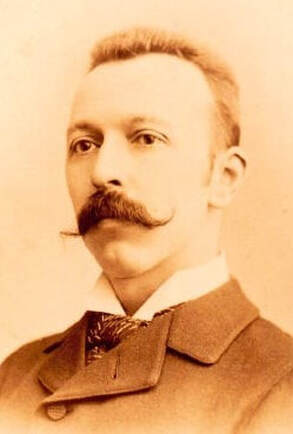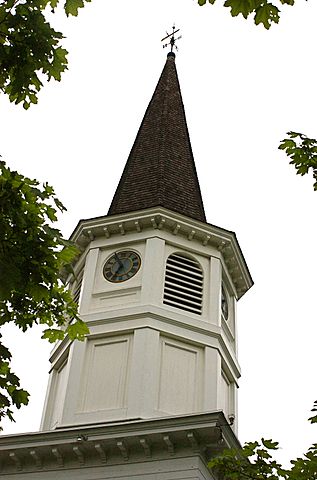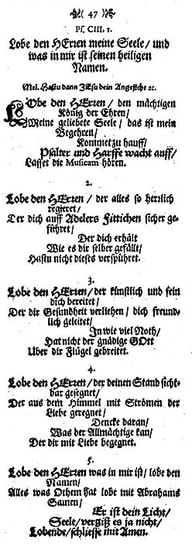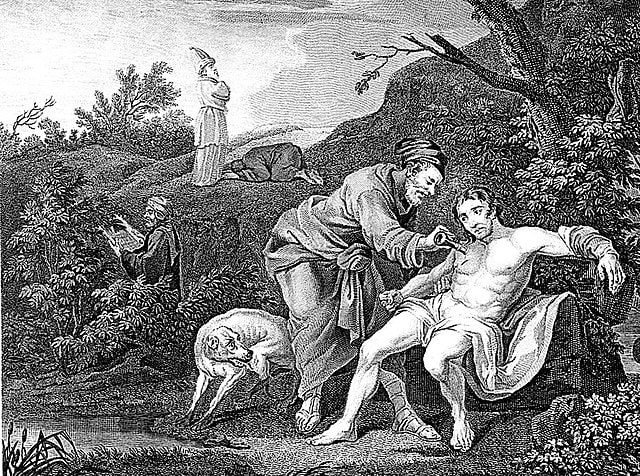 Photo by Ch. Reutlinger, Paris, BNF Richelieu - http://kirchenmusik-brenneke.de, Public Domain, https://commons.wikimedia.org/w/index.php?curid=1051825 Photo by Ch. Reutlinger, Paris, BNF Richelieu - http://kirchenmusik-brenneke.de, Public Domain, https://commons.wikimedia.org/w/index.php?curid=1051825 This Sunday morning we hear two excerpts from a staple of the organ repertory, Suite gothique. The four-movement work was composed by Léon Boëllmann in 1895, just two years before his untimely death at the age of 35. While greatly influenced by contemporaries César Franck and Camille Saint-Saëns, Boëllmann's compositional style also channeled post-Romantic sensibilities in his sonorous phrasing and harmonies. The beautiful "Prière à Notre-Dame" opens the service with "Menuet gothique" closing worship on a majestic note. The Summer Choir returns for the last time this season with a reading of "Song of Remembrance" by Tom Fettke. This communion anthem is a paraphrase of Jesus' words to us from I Corinthians 11: 24-26 "Do this in remembrance of me."
0 Comments
 By Tim Pierce - Own work, CC BY 3.0, https://commons.wikimedia.org/w/index.php?curid=6792465 By Tim Pierce - Own work, CC BY 3.0, https://commons.wikimedia.org/w/index.php?curid=6792465 This week we will hear works from and inspired by the rich musical history of the British Isles. The well known Irish folk tune Slane ("Be Thou My Vision") is set as an organ partita by composer Daniel Pinkham. Pinkham was a respected presence in the Boston music life having spent decades as organist for the historic King's Chapel and a professor at the New England Conservatory of Music. "Be Thou My Vision" is part of a collection of works entitled "Music for a Quiet Sunday" and premiered by James David Christie in 1999 at Follen Community Church (Unitarian) in Lexington, Massachusetts. "Toccata Giocosa" (meaning a "playful" toccata) by Welsh composer William Mathias will close the service. It was dedicated to and premiered by Sir David Willcocks on the installation of the new organ at the Royal College of Organists, London in 1967. Additionally, Celtic music by violinist Abigail Steidley and guitarist Scott Steidley will be played during the offering leading to a Celtic-inspired Doxology. And the Chancel Choir will make a rare appearance this summer as we all see our Associate Minister Jake Joseph off to his new calling in New England. The choir will provide a sung benediction, "An Irish Blessing" by Bob Chilcott, to that end. The musical selections this Sunday are inspired by the suggested character of a "Good Samaritan": humbleness, a devotion to the Light, perhaps one embodying "eroica," a heroic nature.
We begin the morning with a character piece from A Quaker Reader (1977), "Bewitching attire of the most charming simplicity...", by esteemed American composer Ned Rorem. The title is a quote from an essay describing the humble and endearing attributes of 18th century Quakers in Nantucket, Massachusetts. The Summer Choir returns with a joyful offering in "We Are Singing, for the Lord Is Our Light," a liberal interpretation by Hal Hopson of the South African Freedom Song "Siyahamba." And finally, a "Festival Voluntary" by 20th century Belgian organist and composer Flor Peeters lends a regal British style close to the service. At 6:00 p.m. I will be joined by Blair and violinist Hannah Walters as we present offerings from contemporary American composers. The preservice meditation time will be accompanied by the tranquil organ excerpt from A Quaker Reader to help you center for worship. During communion we offer my jazzy arrangement of "In Christ There Is No East or West" for piano, voice, and violin (based on an organ setting by James Biery). To close, myself and Hannah play "Etude in A MInor" by Michael Nyman. This work famously appeared in the soundtrack to the 1993 film The Piano, and in other contexts as well. It is a work that I believe viscerally embodies the affect of "eroica."  By Joachim Neander - Joachim Neander: Glaub- und Liebes-Übung: Auffgemuntert durch Einfältige Bundes-Lieder und Danck-Psalmen, Wesel/Duisburg/Frankfurt 1686, S. 47+49, Public Domain, https://commons.wikimedia.org/w/index.php?curid=37964582 By Joachim Neander - Joachim Neander: Glaub- und Liebes-Übung: Auffgemuntert durch Einfältige Bundes-Lieder und Danck-Psalmen, Wesel/Duisburg/Frankfurt 1686, S. 47+49, Public Domain, https://commons.wikimedia.org/w/index.php?curid=37964582 The prescribed reading for this Sunday, Psalm 66, asks us to "make a joyful noise to God" and "sing the glory of his name." The annual Hymn Sing this Sunday morning should suffice then! With hymnody and the scripture in mind, chorale preludes based on one very famous tune will be the course. The 1680 German hymn "Lobe den Herren, den mächtigen König der Ehren," often translated as "Praise to the Lord, the Almighty, King of Creation," is a staple of Christian congregational singing and found in hymnals throughout the world, including The New Century Hymnal (hymn 22 "Sing Praise to God, Who Has Shaped"). Written by German Reformed Church teacher and theologian,Joachim Neander, the tune was likely based on a folk tune, first appearing in print fifteen years earlier. Numerous settings of "Lobe Den Herren" have been written over the centuries by namely Lutheran organ composers such as J.S. Bach, Johann Walther, and Hugo Distler. This Sunday morning, we'll hear 20th century settings by German Neo-Baroque composer Helmut Walcha and Paul Manz, the Cantor Emeritus of Mount Olive Lutheran Church in Minneapolis. At the outdoor 6:00 p.m. Dinner Church service, we'll sing songs interspersed with Jane Anne's creative retelling of the joyful Psalm 66. Bobby and Blair will lead the way and be joined by bassist Peter Strening and Michael Hamilton on percussion. |
Details
|


 RSS Feed
RSS Feed